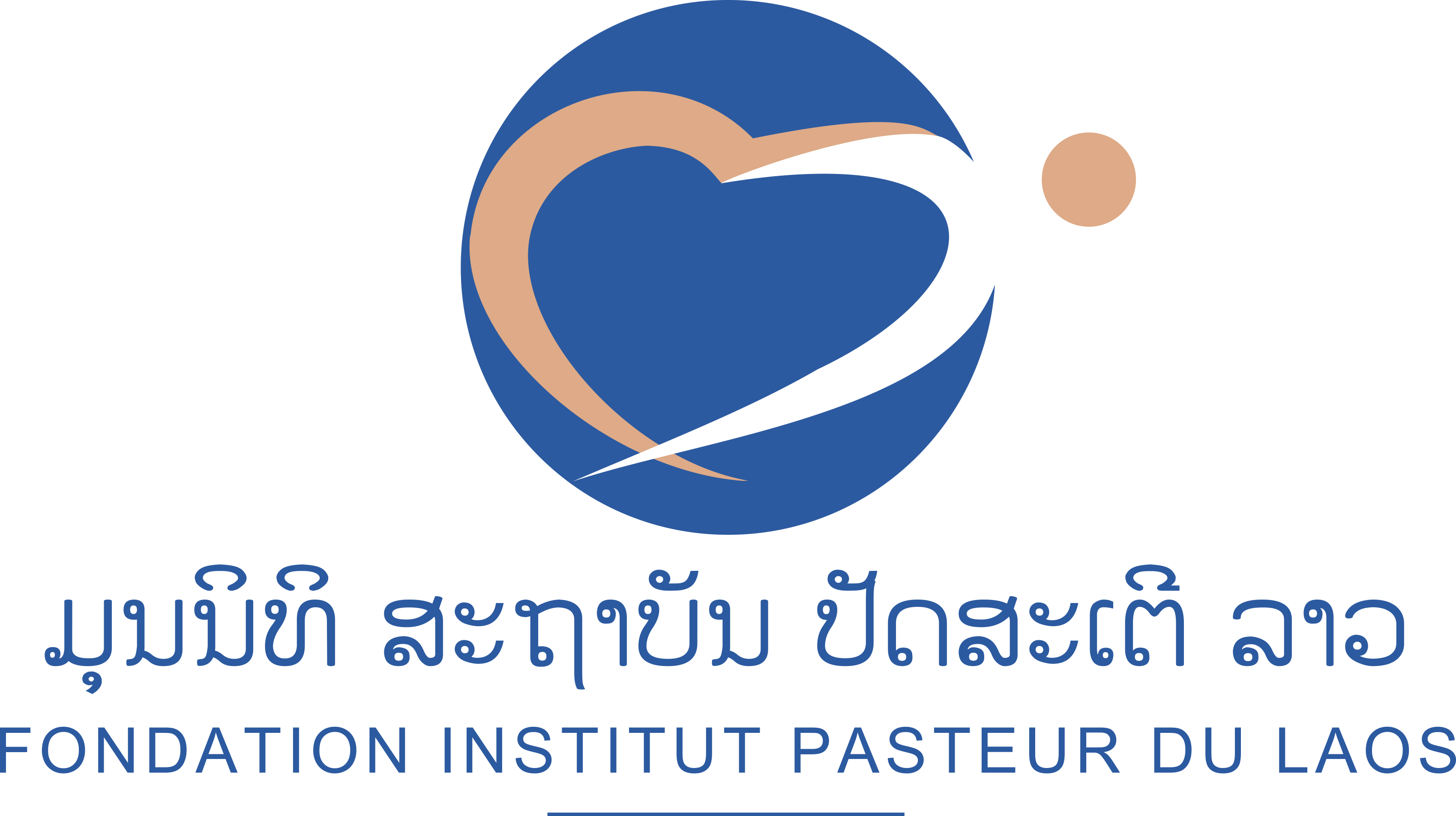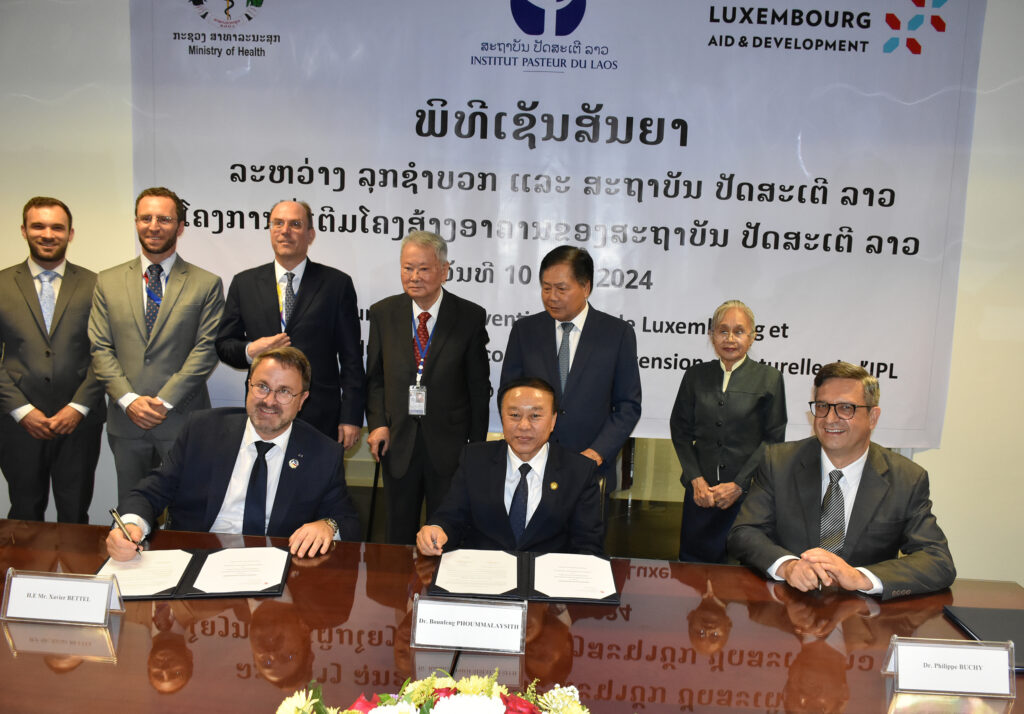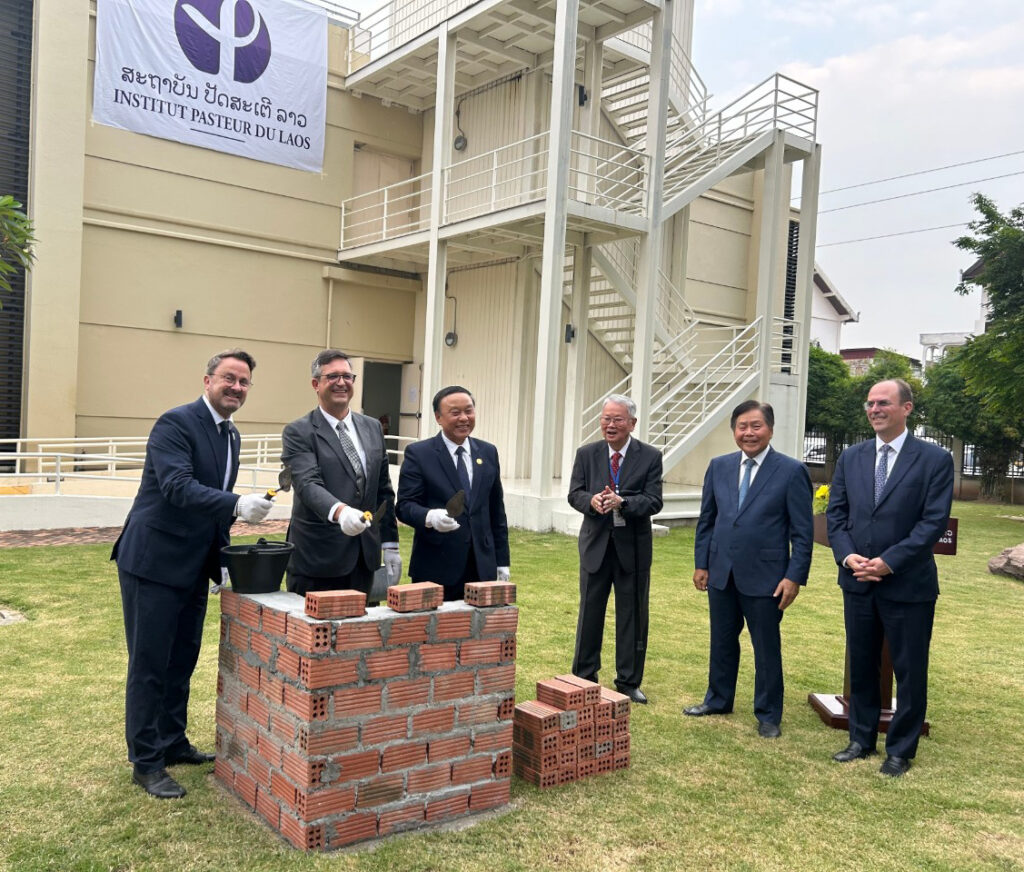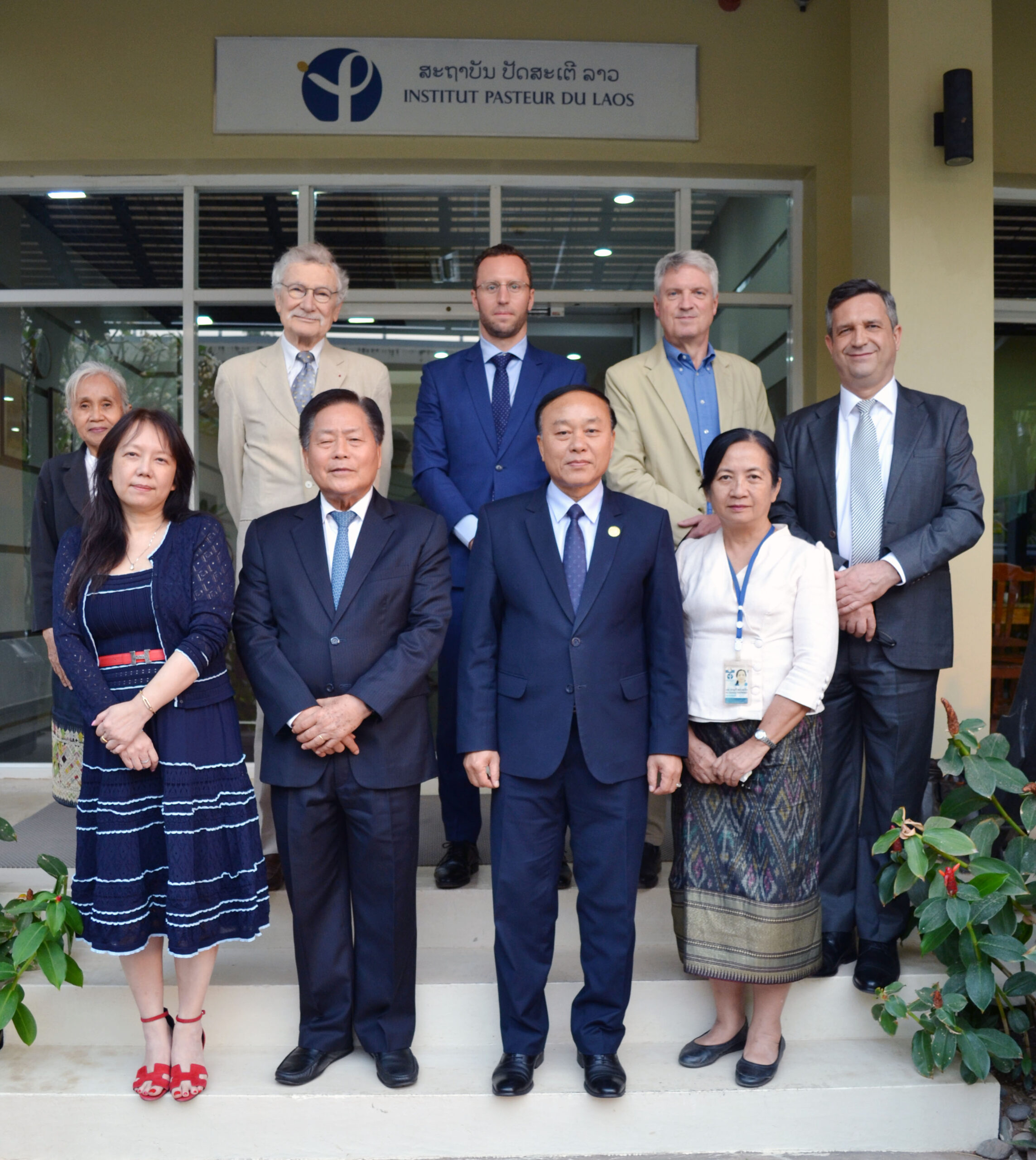What is IPL?
Institut Pasteur du Laos (IPL) is a Lao National Institution created by the Prime Ministerial Decree in November 2007.
IPL is the result of a long term and joint decision between Lao Ministry of Health and Institut Pasteur Paris which commits to stay 16 years before retroceding the full management of IPL. Sustainability will be achieved by preparing a new generation of Lao doctors and scientists to fill key positions as heads of laboratories and administration at IPL.
IPL has a mandate from the Lao Ministry of Health to fulfill activities of public service:
1. Research and diagnosis of emerging infectious diseases and vector borne diseases.
2. Training, Education and Capacity building.
3. Technical assistance to the National Center for Laboratory and Epidemiology ( NCLE) for the investigation of epidemics.
IPL benefits from a large degree of autonomy (legal, scientific, management, financial) and as such can be considered as a new model of Lao public institution. All the ownership belongs and remains the property of Lao PDR.
IPL has scientific autonomy within its mandate provided by the MoH. It is able to engage freely in collaborative research and investigations with other Lao and international research and public health organizations.
Financial issues are independent of the Lao public finance system. IPL is able to receive outside funding (donations, grants, bequeaths, etc.) and to generate its own resources through its own discoveries to insure its sustainability.
IPL is supported by many international institutional and private donors. Lao Ministry of Health (MOH) contributed initially by providing a 9,000 m2 plot of land in downtown Vientiane and paying for utilities.
The sustainability of this Institute, like many of the 30 Instituts Pasteur around the world, several of which are more than 100 years old, will rely on 1) research grants, international donors and philanthropy, 2) income from its own discoveries and services, 3) Lao public funds.
IPL operations started in December 2011 with 4 laboratories: 1) arbovirus & emerging viral diseases, 2) vaccine preventable and infectious diseases, 3) medical entomology and 4) parasitology.
Among the facilities, there is also a dedicated Training Center for hands-on laboratory training and biosecurity enhancement.








